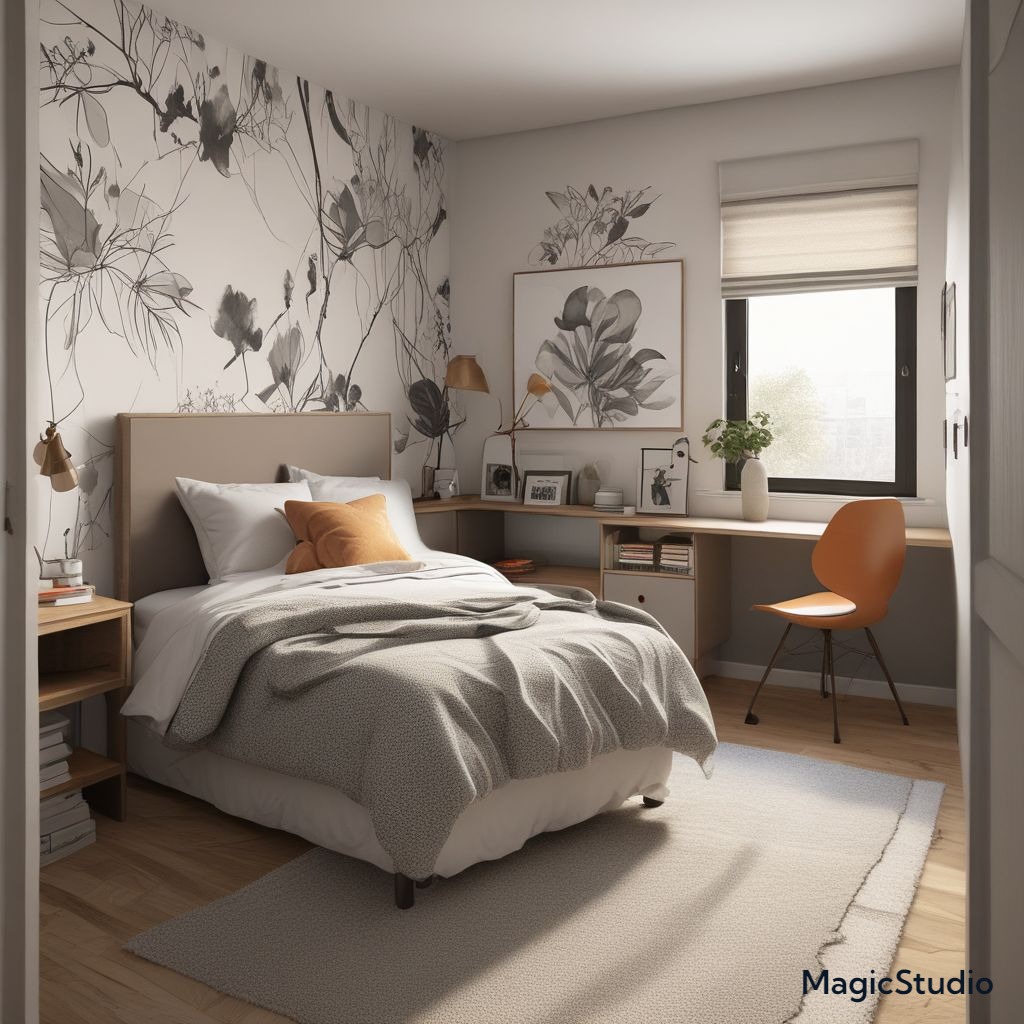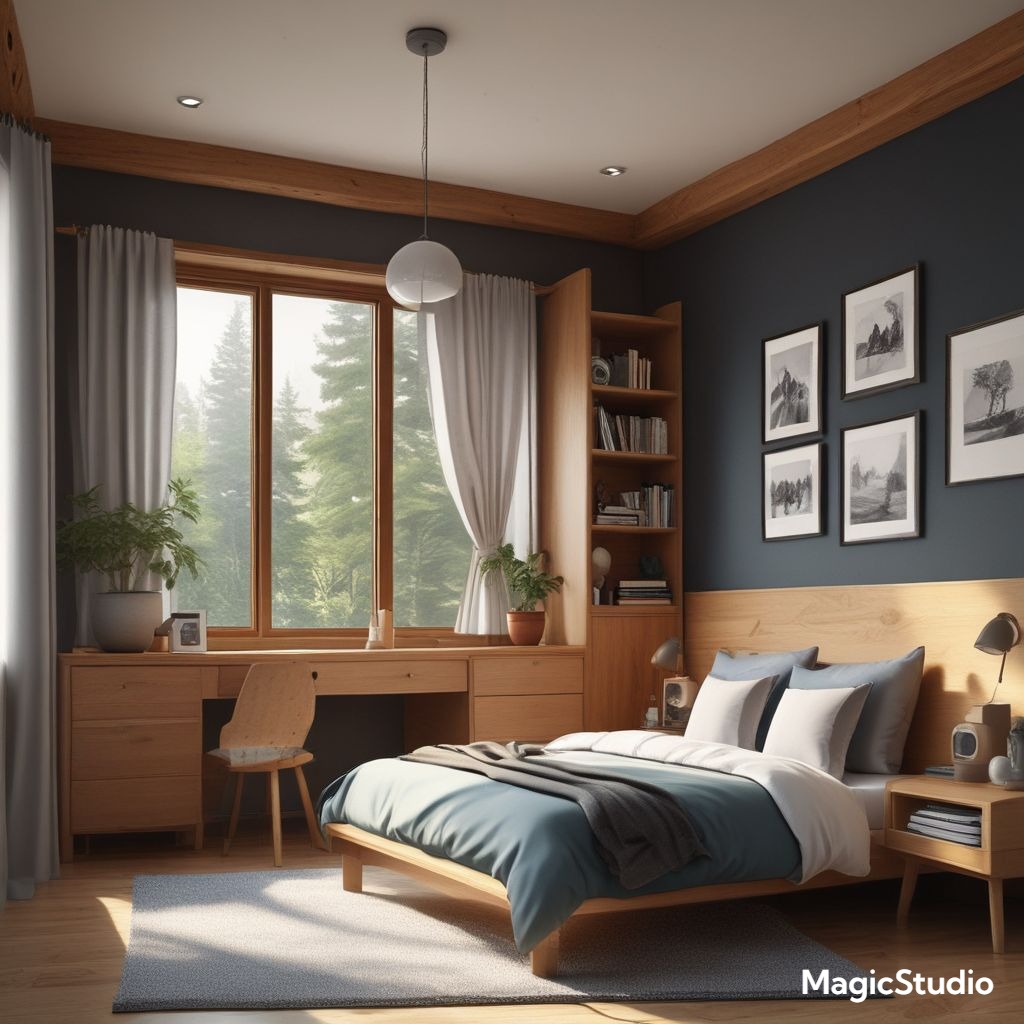Designing a kid’s bedroom can be a fun and exciting project. But for parents seeking a stylish and calming atmosphere, Japandi design presents a unique opportunity to create a space that’s both functional and aesthetically pleasing. Japandi, a fusion of Japanese and Scandinavian design principles, emphasizes simplicity, minimalism, and a sense of serenity. This style perfectly complements the playful spirit of childhood while fostering a sense of tranquility and well-being.
Soft Neutrals with Pops of Color
Embrace the core of Japandi design with a neutral color palette of white, cream, beige, and soft gray. Introduce pops of vibrant color through playful accent pieces like throws, pillows, and rugs. This creates a calming foundation while injecting youthful energy. Consider using muted shades of green, pink, or blue for a harmonious balance. In the US and EU, incorporating organic textures like linen, wool, and cotton adds a natural and inviting feel, aligning with the Japandi emphasis on natural materials.
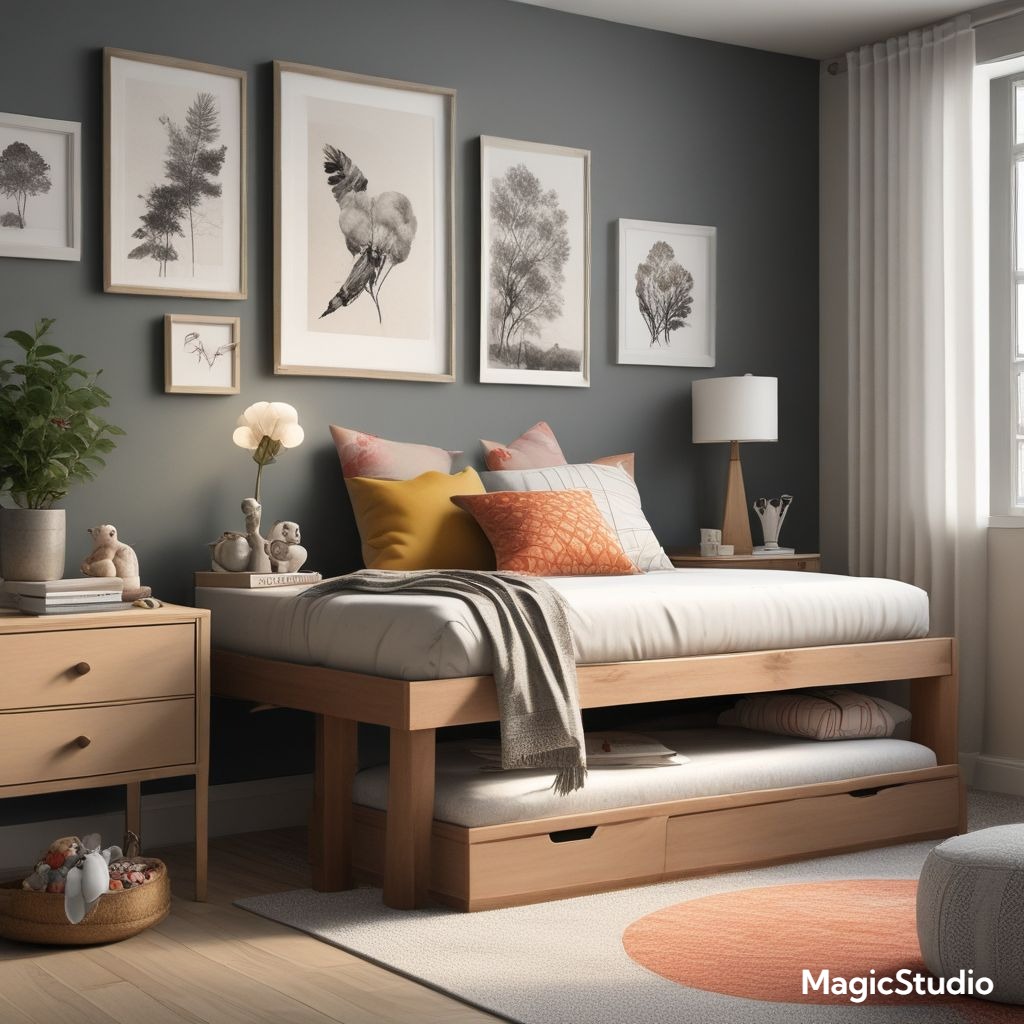
Natural Wood Accents
Natural wood is a defining element of Japandi design. Incorporate wood accents in the form of furniture, shelves, or even decorative elements like wooden toys or wall art. Select pieces with clean lines and simple forms to maintain a minimalist aesthetic. The use of natural wood adds warmth and a sense of grounding to the space, reflecting the Japanese appreciation for natural beauty. In recent US and EU trends, wood finishes like light oak and walnut are gaining popularity, providing a contemporary and versatile touch.
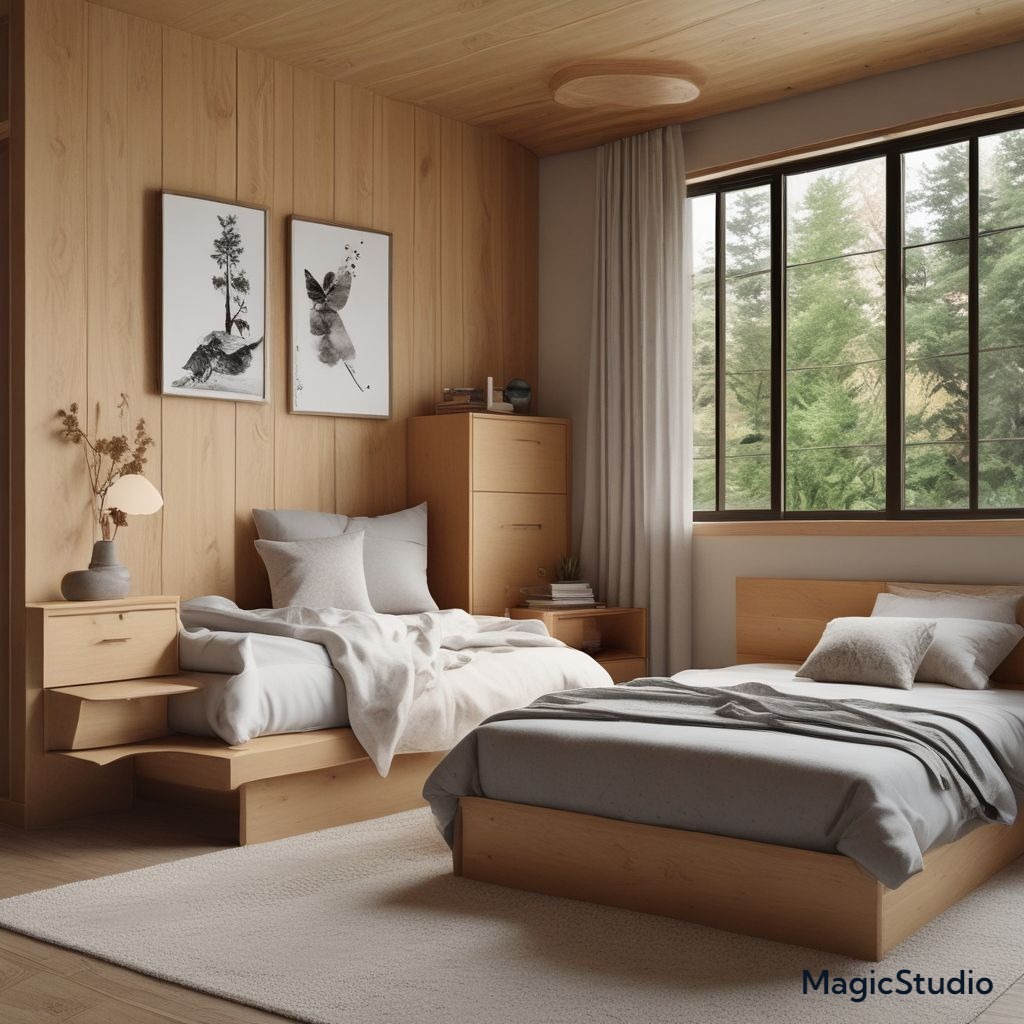
Geometric Patterns
Introduce geometric patterns through textiles and wall art. Opt for subtle patterns like stripes, chevrons, or simple geometric shapes. This approach adds visual interest without overwhelming the space. In recent trends, incorporating subtle geometric patterns on curtains or rugs can bring a contemporary edge to the design while keeping it in harmony with the minimalist principles of Japandi.
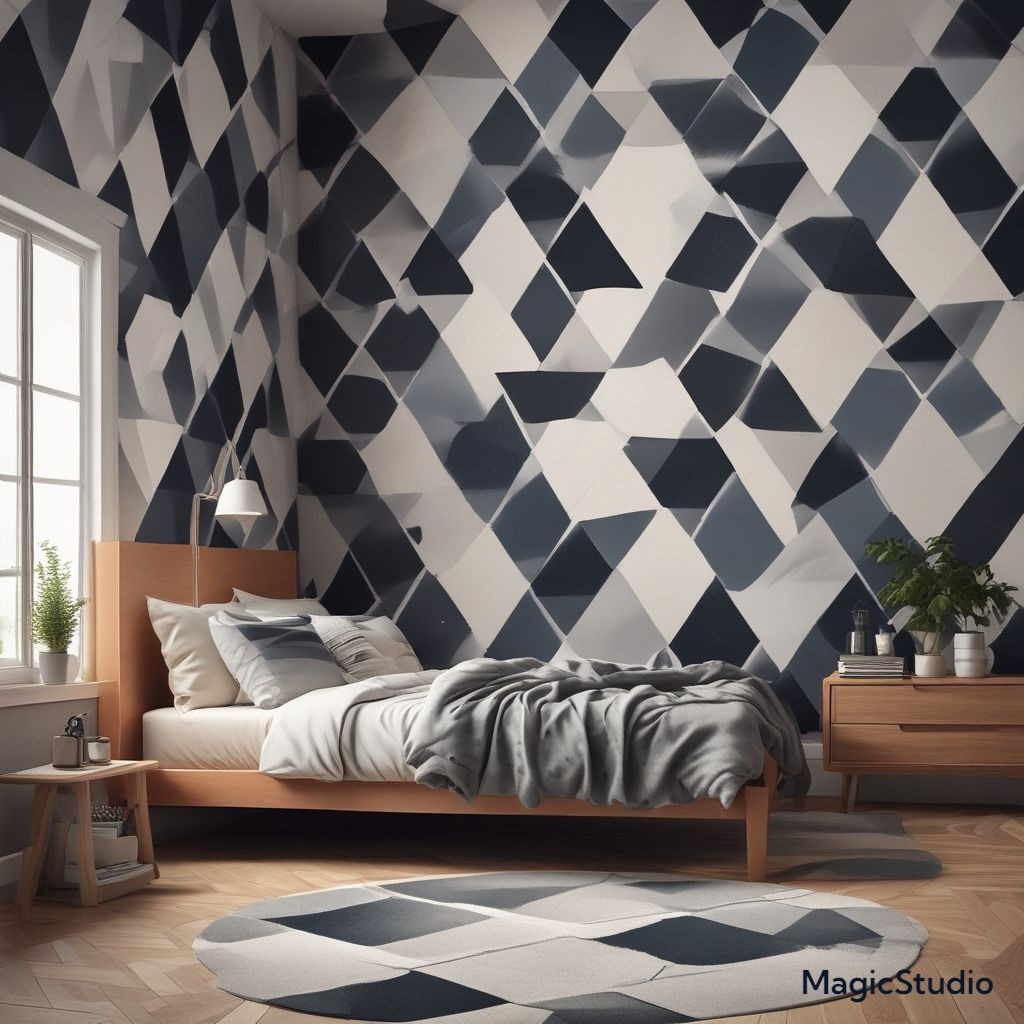
Sustainable Materials
Japandi design emphasizes sustainability and natural materials. Choose furniture and decor made from sustainable sources like bamboo, recycled wood, or organic cotton. This eco-conscious approach aligns with growing global awareness about environmental impact. In the US and EU, brands specializing in sustainable and ethically sourced materials are becoming increasingly popular, making it easier to integrate this element into kid’s bedroom design.
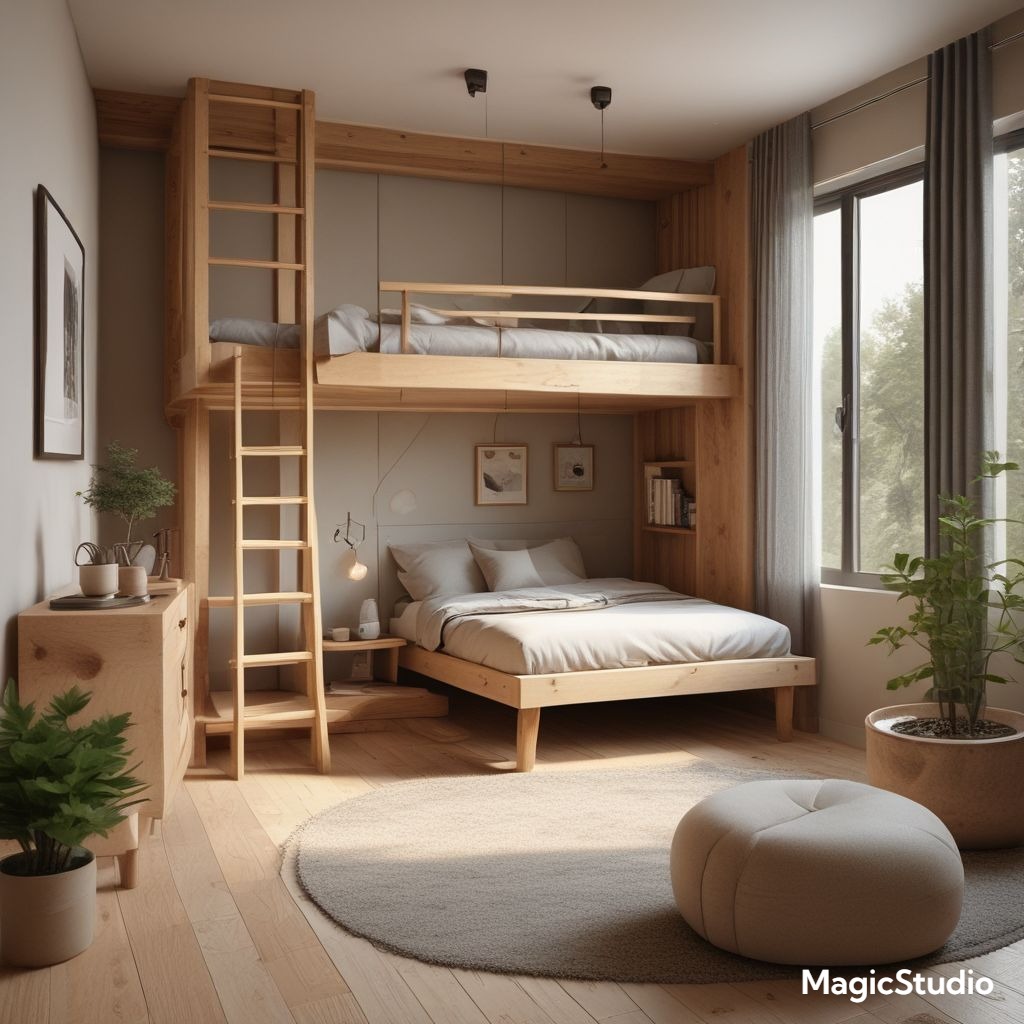
Minimalist Lighting
Soft and diffused lighting is essential for creating a calming and inviting atmosphere. Consider using pendant lights with natural materials like bamboo or rattan. Incorporate table lamps with simple linen shades for reading areas. Avoid harsh overhead lighting and opt for adjustable lamps that allow for flexible lighting levels. This approach aligns with the Japanese philosophy of “wabi-sabi,” which embraces imperfections and simplicity.
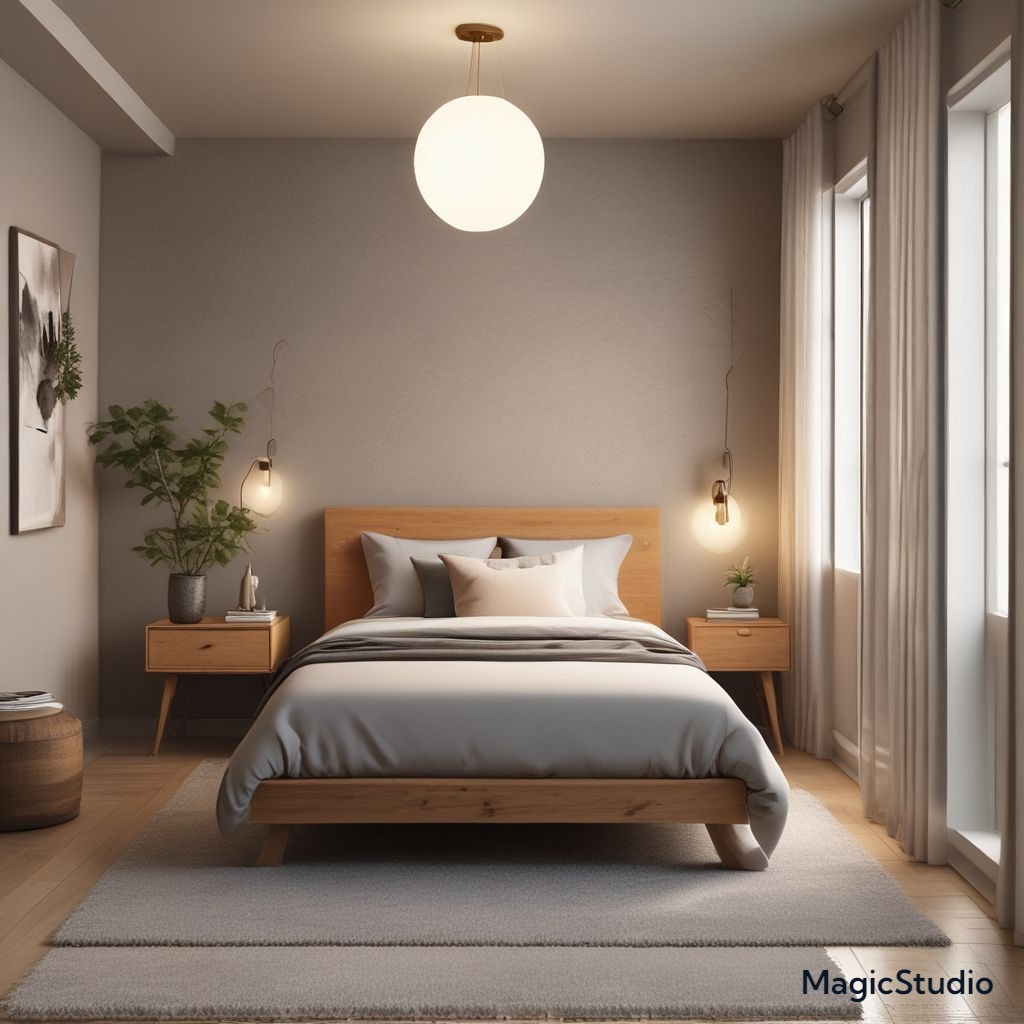
Simple Storage Solutions
Keep the space clutter-free with functional and stylish storage solutions. Utilize open shelving for toys and books, and incorporate baskets for smaller items. Choose storage units with clean lines and minimal detailing to maintain a minimalist aesthetic. This focus on organization and visual tidiness is a key element of Japandi design. In the US and EU, minimalist storage solutions that prioritize functionality and aesthetic appeal are becoming increasingly sought after.
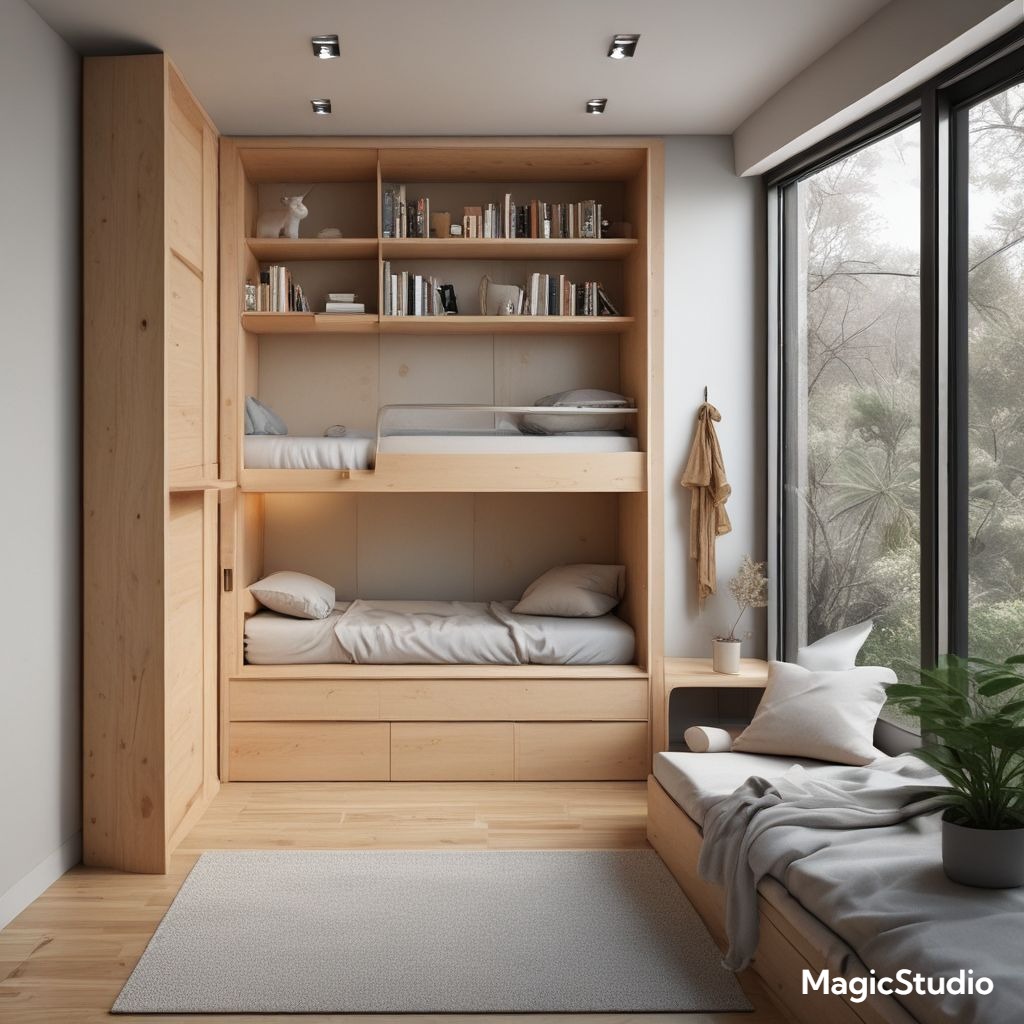
Wall Murals
Introduce a playful touch with a wall mural featuring a nature-inspired scene. Choose a serene landscape, whimsical animal design, or a calming abstract pattern. This can be a subtle way to incorporate color and visual interest without overwhelming the space. Wall murals are gaining popularity in both the US and EU, allowing homeowners to personalize spaces with unique and expressive designs.
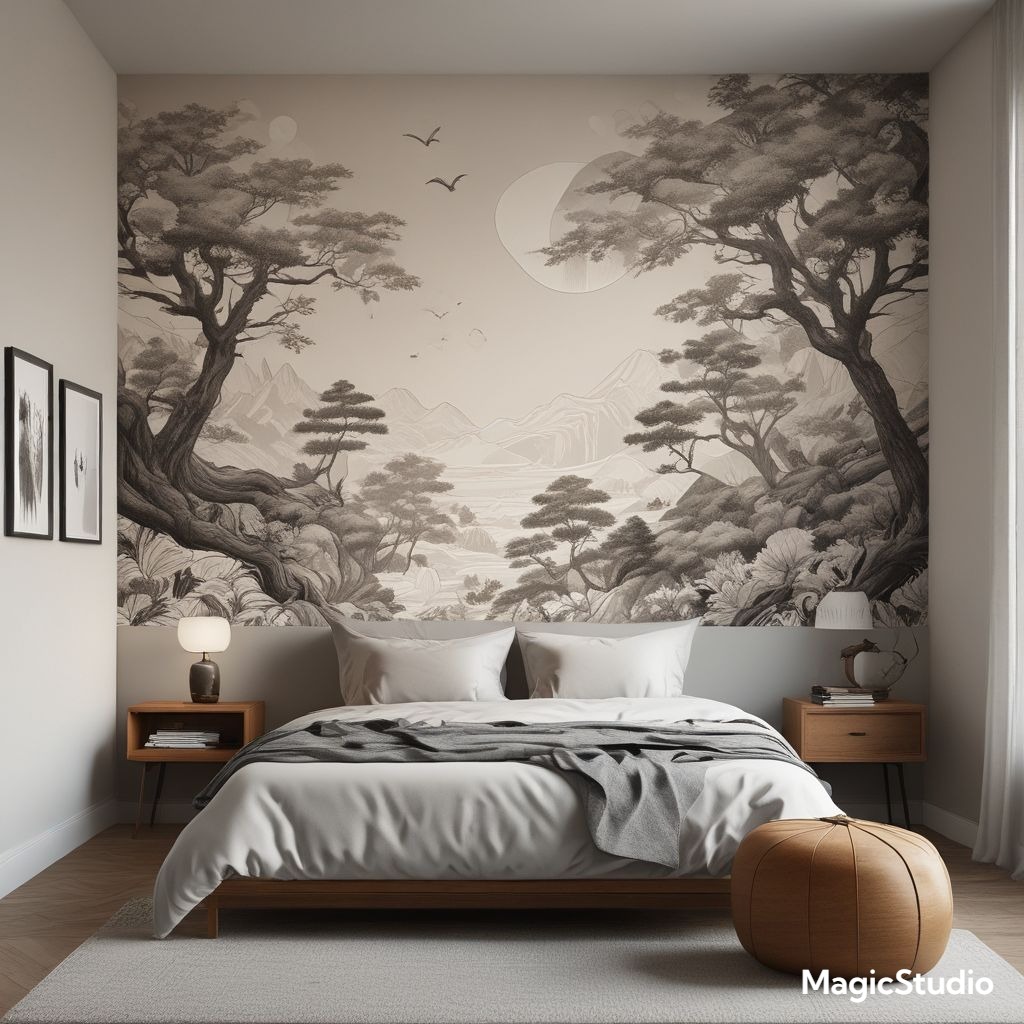
Playful Pillows and Throws
Add a touch of personality and color with playful pillows and throws. Choose fabrics with interesting textures and patterns. These can be easily swapped out to change the look of the room as your child’s style evolves. In the US and EU, the use of bold, textured throws and cushions is a popular trend, providing a pop of color and personality in minimalist spaces.
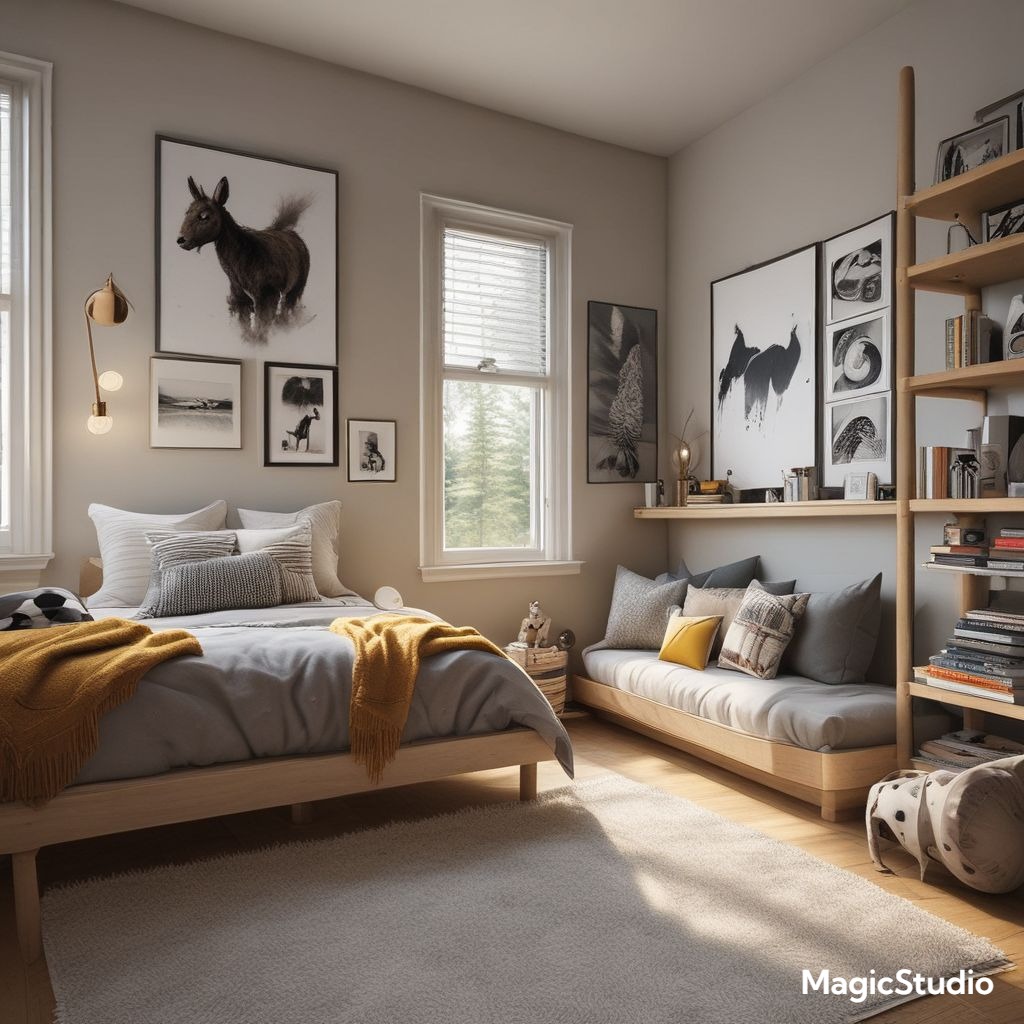
Floating Shelves
Optimize space and maintain a minimalist aesthetic with floating shelves. These shelves create a clean and uncluttered look while providing ample storage space for books, toys, and decorative items. In the US and EU, the popularity of open shelves and minimalist storage solutions is on the rise, allowing for a balance between functionality and aesthetic appeal.
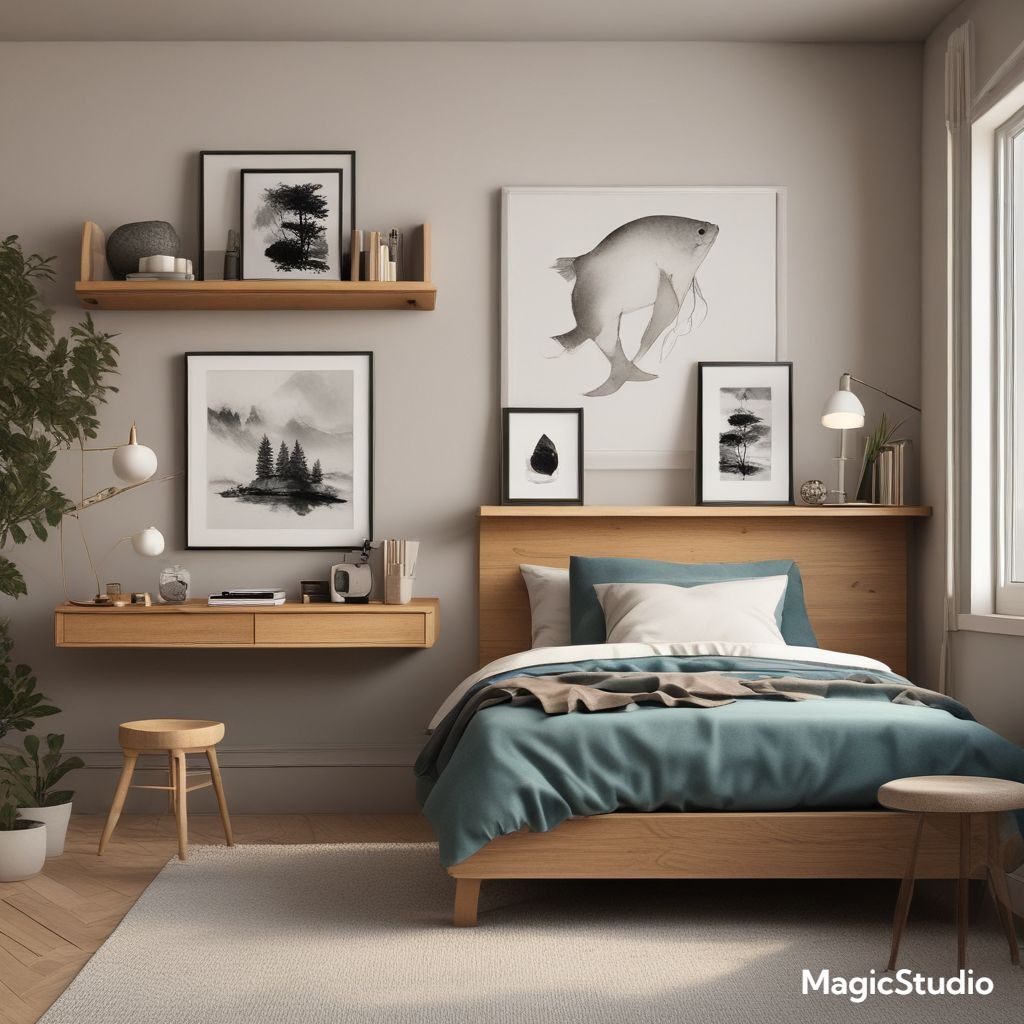
Rattan or Bamboo Furniture
Incorporate rattan or bamboo furniture pieces to add natural warmth and texture. Choose a simple chair, side table, or storage basket made from these materials. Rattan and bamboo are not only sustainable but also visually appealing and lightweight, adding a touch of bohemian flair to the space. In the US and EU, the use of natural materials like rattan and bamboo is becoming increasingly popular, reflecting a growing preference for sustainable and handcrafted designs.
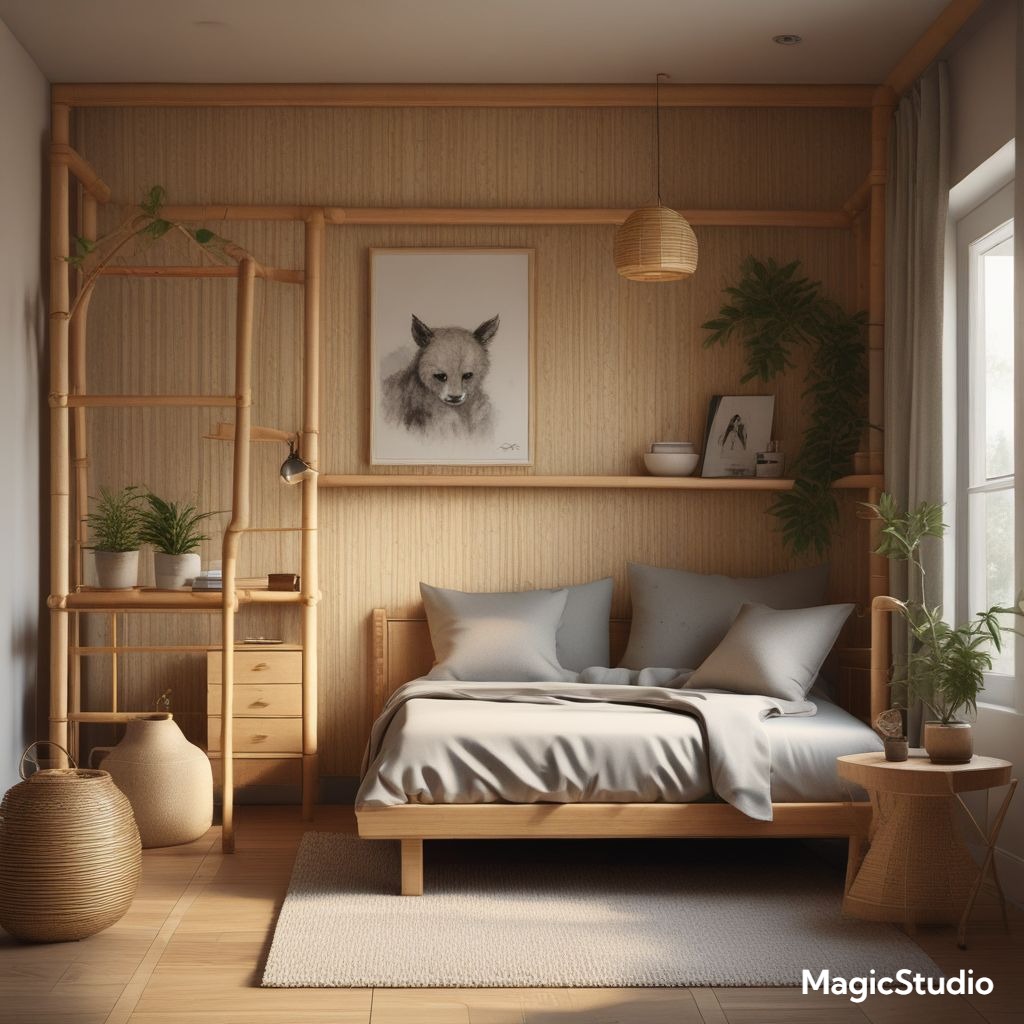
Textured Rugs
Add warmth and comfort with a textured rug. Choose a rug made from natural materials like wool or jute, and opt for a subtle pattern or solid color. Textured rugs add visual interest and depth to the floor while complementing the minimalist aesthetic of Japandi design. In the US and EU, the use of textured rugs is a popular trend, providing warmth and visual appeal in minimalist settings.
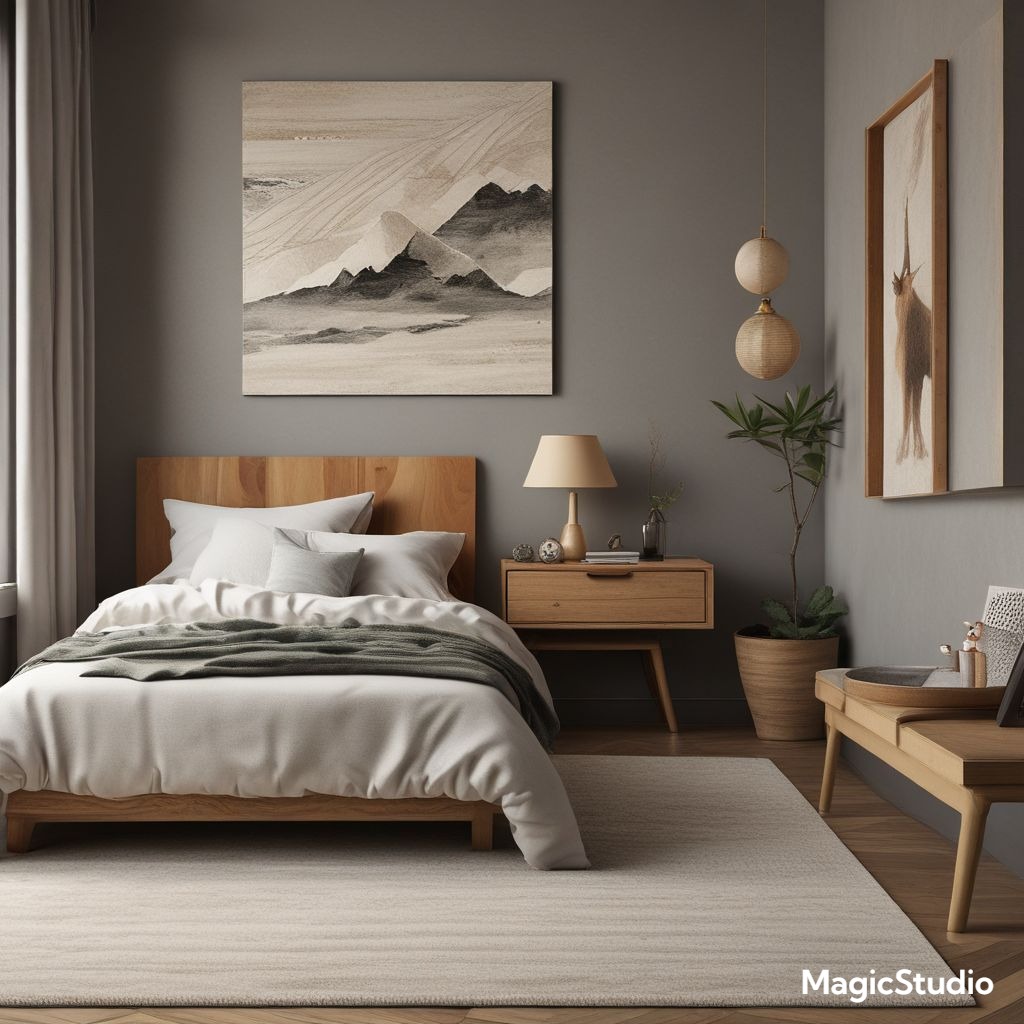
Nature-Inspired Art
Incorporate nature-inspired art pieces to enhance the calming atmosphere. Choose prints or paintings featuring serene landscapes, calming flora and fauna, or abstract patterns that evoke a sense of tranquility. This approach reflects the Japanese appreciation for the beauty of nature. In the US and EU, the use of nature-inspired art is becoming increasingly popular, with consumers seeking to create spaces that reflect their connection to the natural world.
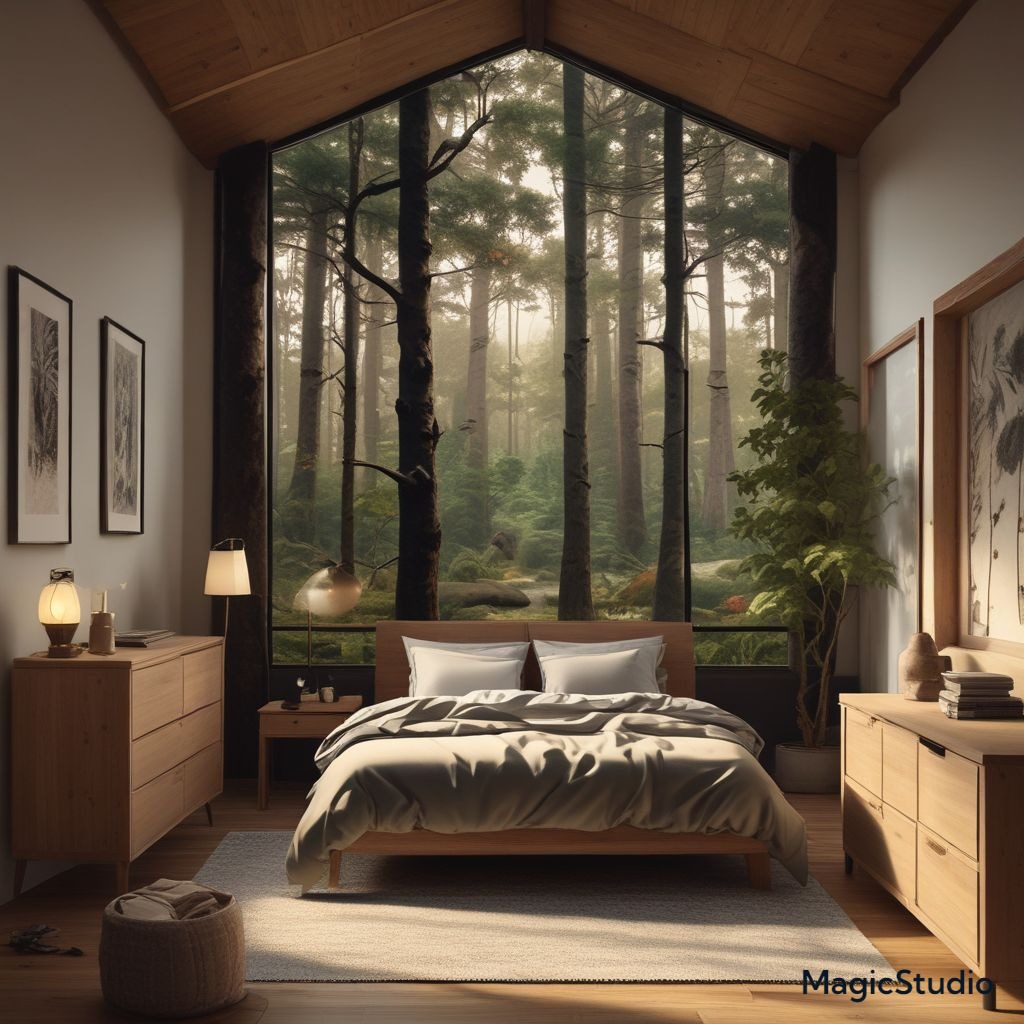
Personalized Wall Decor
Add a personalized touch with wall decor that reflects your child’s interests. Use fabric banners with their name or initials, or display framed artwork they have created. This approach adds a sense of ownership and individuality to the space. In the US and EU, personalized wall decor is a popular trend, allowing families to create unique and meaningful spaces for their children.
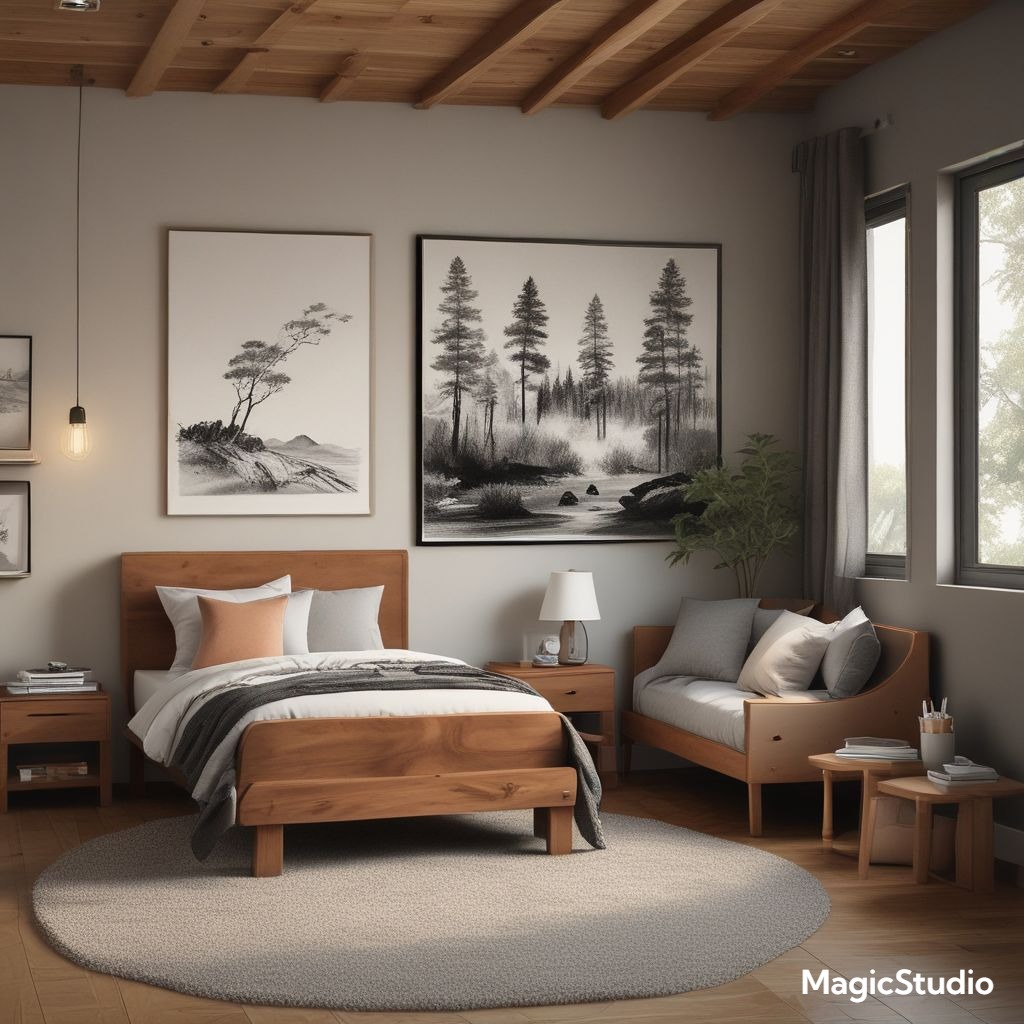
Natural Fiber Bedding
Choose bedding made from natural fibers like cotton or linen. Opt for neutral colors or subtle patterns to create a calming and inviting sleeping space. Natural fibers are soft, breathable, and durable, contributing to a sense of well-being. In the US and EU, bedding made from natural fibers is increasingly popular, reflecting a growing awareness of the importance of sleep quality and sustainable materials.
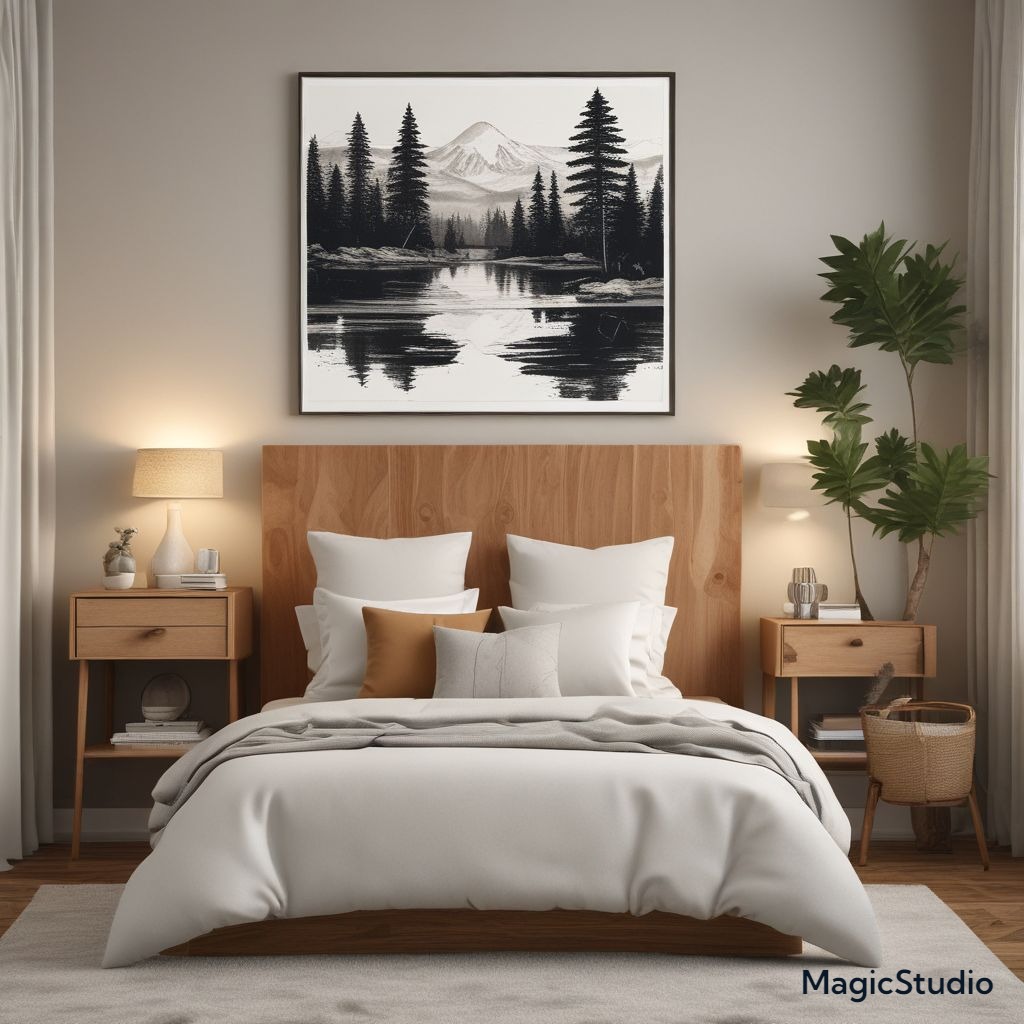
Calming Color Palette
Maintain a calming atmosphere by using a color palette inspired by nature. Opt for soft greens, blues, and browns, creating a sense of peace and tranquility. Avoid overly bright or stimulating colors, and focus on a palette that promotes relaxation and restful sleep. The use of calming and nature-inspired color palettes is a popular trend in both the US and EU, reflecting a desire for spaces that promote relaxation and well-being.
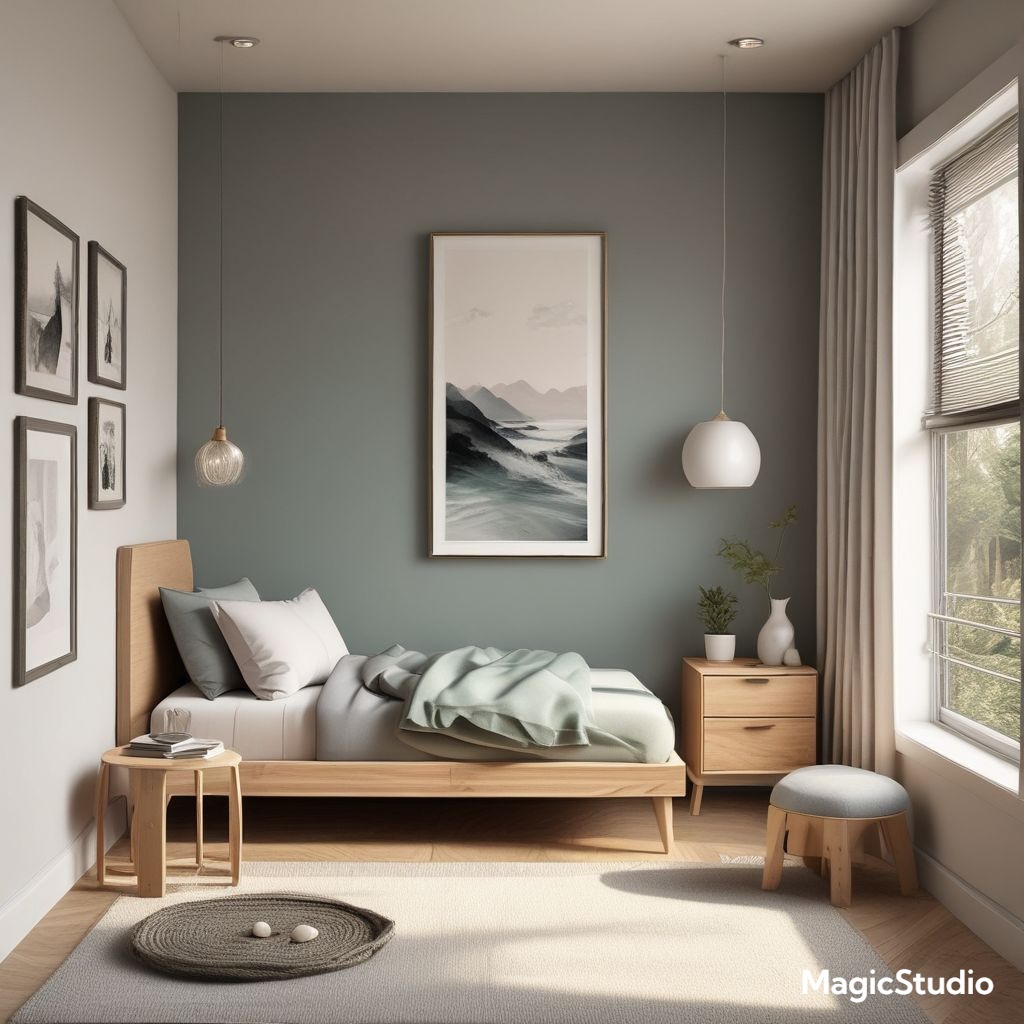
Playful Accent Wall
Add a playful touch to a neutral color scheme with a single accent wall. Choose a soft, muted color that complements the overall design, or introduce a subtle pattern. This approach creates visual interest without overwhelming the space. The use of accent walls is a popular trend in both the US and EU, allowing homeowners to add personality and visual interest to their spaces.
